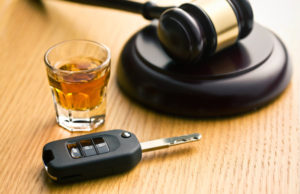
If you are stopped for a driving under the influence investigation what are your rights and how should you proceed?
These are questions I am frequently asked by clients.
Let’s start with the initial stop. According to the California Highway Patrol the number one reason why traffic stops are made leading to D.U.I investigations is speeding. If you are going even one mile over the speed limit, law enforcement can legally stop you. It sounds unfair but the line has to be drawn somewhere and over the speed limit is illegal even if only one mile over. There are many other reasons why a peace officer can pull you over and investigate but all of them must rise to the level of probable cause for there to be a legal stop. The key word is probable cause and it has been defined by the Supreme Court of the United States as “reasonable suspicion based on articulable facts that criminal activity is afoot.” What that means is that whether a felony, misdemeanor, or infraction (including no visible license plate, obstructed windshield, non-operating light or expired tags), if the officer observes some violation of the law including the California Vehicle Code, then he can make a legal traffic stop.
So what does that mean for me when I’m pulled over.
.
Do I have a constitutional right not to speak with the officer?
Yes and no. You must provide your driver’s license and identify yourself and inform him of your correct address. Beyond that you do not have the obligation to disclose any information relating to where you were coming from, where you are going, what time you got up in the morning, when you last ate, when you last slept, if you have any medical conditions, whether you have been drinking, how much you have been drinking, when you started drinking, or when you had your last drink. All those questions can implicate you and are inherently incriminating. You can invoke your fifth amendment right against self-incrimination and politely tell the officer that while you are willing to cooperate with any lawful requests by the officer, you are invoking your right to remain silent. If you are polite and say it in a nice tone, the officer will more than likely respect your decision.
.
Does the officer have to “read me my rights”?
We are all familiar with the Miranda instruction having seen it on T.V. “You have the right to remain silent, anything you say can and will be used against you in a court of law, you have a right to an attorney and if you can’t afford it, one will be appointed to represent you.” The answer is no. The officer does not have to inform you of your right to remain silent or read you your rights. This is settled law. Don’t confuse it with being required to talk – you aren’t. It’s just that the officer doesn’t have to tell you that you don’t have to talk. Be cooperative and give him your I.D. and tell him where you live.
.
Just because the officer had probable cause to stop my vehicle, does he have a legal right to arrest me?
Maybe the officer saw you weaving within your lane or you made an illegal turn. Whatever the reason, he had the right to pull you over and asks you for your license. You comply with all of his directives and show him your valid license, registration and proof of insurance. The officer does not have a right to arrest you just based on these facts. Let’s add an additional fact: the interior of the car smells like alcohol and the officer suspects you have been drinking. He asks you to exit your vehicle and you comply. He then proceeds to arrest you. Is this legal. Most likely not. Simply detecting the odor of an alcoholic beverage does not lead to a reasonable suspicion that you were driving impaired. The source of the odor could have just as likely been due to an open container or spillage on the floorboard. How about if we add another factor and the officer smells alcohol emitting from your breath when you talk to him? Still doesn’t rise to the level necessary to arrest you. That is why the officer will request that you submit to field sobriety tests, some of which are approved by the National Highway Traffic Safety Administration and some that are not. The results of your ability to perform the various tests usually conclude with a determination of whether you “passed” and has various boxes and charts in the police report purporting to support the observations of the officer. There is no clear cut pass/fail score so the officer makes a subjective determination as to whether or not you “passed”. If you didn’t, the officer probably still doesn’t have reasonable cause to arrest you because there are numerous reasons why someone may not be impaired for purposes of driving yet perform poorly on a balance or coordination test.
.
This is where the preliminary alcohol screening device comes into play and this is when they usually ask you if you are willing to submit to the P.A.S. test. By law, they are required to tell you that you do not have to submit to the in-field breath test. Often they don’t but if you do agree to take it and you blow over a .08, they will arrest you for driving under the influence and driving with over .08 blood alcohol in your system. The important thing to remember is that you are not required by law to submit to any of the in-field sobriety tests nor the preliminary alcohol screening device breath test. These are all tools that law enforcement uses to determine whether or not they have enough evidence to effectuate a legal arrest. The less information you give them, the better. Always remember, if you have been unfairly arrested, your remedy for justice and a possible dismissal is a motion to dismiss in court. Don’t fight or resist the officer. With a good attorney you will be able to resolve the injustice in a court of law.
.
Assuming you have been legally arrested, you will be asked to submit to a breath or blood test. This is where it gets interesting. You still do have a constitutional right against self-incrimination and as such you can legally refuse consent to a blood or breath test. The problem is that by being issued a California driver license, you are agreeing to what is referred to as “implied consent” and if you invoke your fifth amendment right against self – incrimination by refusing to submit to a chemical test you will lose your license for one year on a first offense. In other words, because a drivers license is a privilege and not a right, you give up certain constitutional protections as it pertains to your possessory interest in your driver license. Of course, you would be afforded a right to an official hearing with an attorney present to determine if in fact you did refuse the test.
.
Finally, it is important to note that if you do refuse to submit to a chemical test and there are no extenuating circumstances that would allow the officer to force the test, a warrant can be obtained and you can be physically restrained and have your blood drawn against your will. It usually makes more sense to agree to submit to the chemical test than it does not to. Remember, if there was some malfeasance on the part of the arresting officer and proper procedures were not followed, you will have your opportunity to have those issues resolved in a court of law. You always have a right to judicial review and most importantly a jury trial by a panel of objective citizens in your community.
